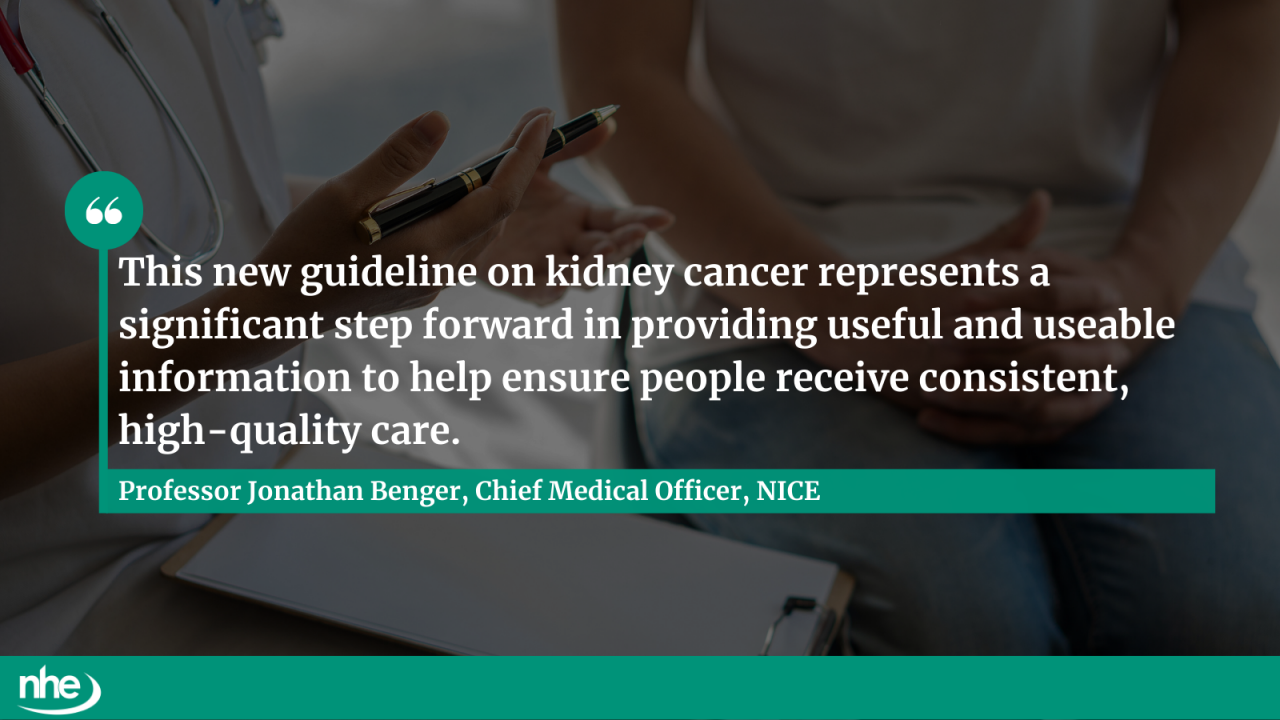Hundreds more people with suspected kidney cancer could avoid unnecessary surgery under new draft guidance from NICE, which recommends increased use of biopsies to confirm diagnosis and guide treatment decisions.
Published for consultation this week, the draft clinical guideline covers the diagnosis, treatment and care of adults with renal cell carcinoma (RCC) – the most common type of kidney cancer. It has been developed in collaboration with clinical experts and patients.
Currently, some patients undergo surgery to remove part or all of a kidney without a confirmed diagnosis, as cancer can only be verified after removal. This can significantly impact quality of life, especially if the lesion turns out to be benign.
NICE estimates that at least 600 people with renal lesions of 4cm or smaller currently receive biopsies each year. The new recommendations could double that number to 1,200, helping reduce unnecessary surgeries and allowing for more informed, personalised care.
Key Recommendations include:
- Offer a biopsy for suspected RCC where the lesion is 4cm or smaller and cancer has not spread.
- Consider biopsy for larger lesions if scans suggest they are benign or before non-surgical treatments.
- Provide all patients with access to clinical nurse specialists in kidney cancer, offering personalised care plans, follow-up schedules, and support contacts.
Professor Jonathan Benger, Chief Medical Officer at NICE, said:
“This new guideline on kidney cancer represents a significant step forward in providing useful and usable information to help ensure people receive consistent, high-quality care.
“Our draft recommendations would likely see an increase in the number of biopsies and a reduction in the number of surgeries for benign lesions, meaning patients are spared an operation they might not need. This is not only better for the patient, but it also saves the NHS time and money that can be used to care for more people.”

The guideline also includes recommendations for diagnosing and managing heritable genetic conditions such as Von Hippel-Lindau disease (VHL), which increases the risk of developing kidney cancer.
The consultation is open until 28 October 2025, and the final guideline is expected to be published in March 2026.
Image credit: iStock



















